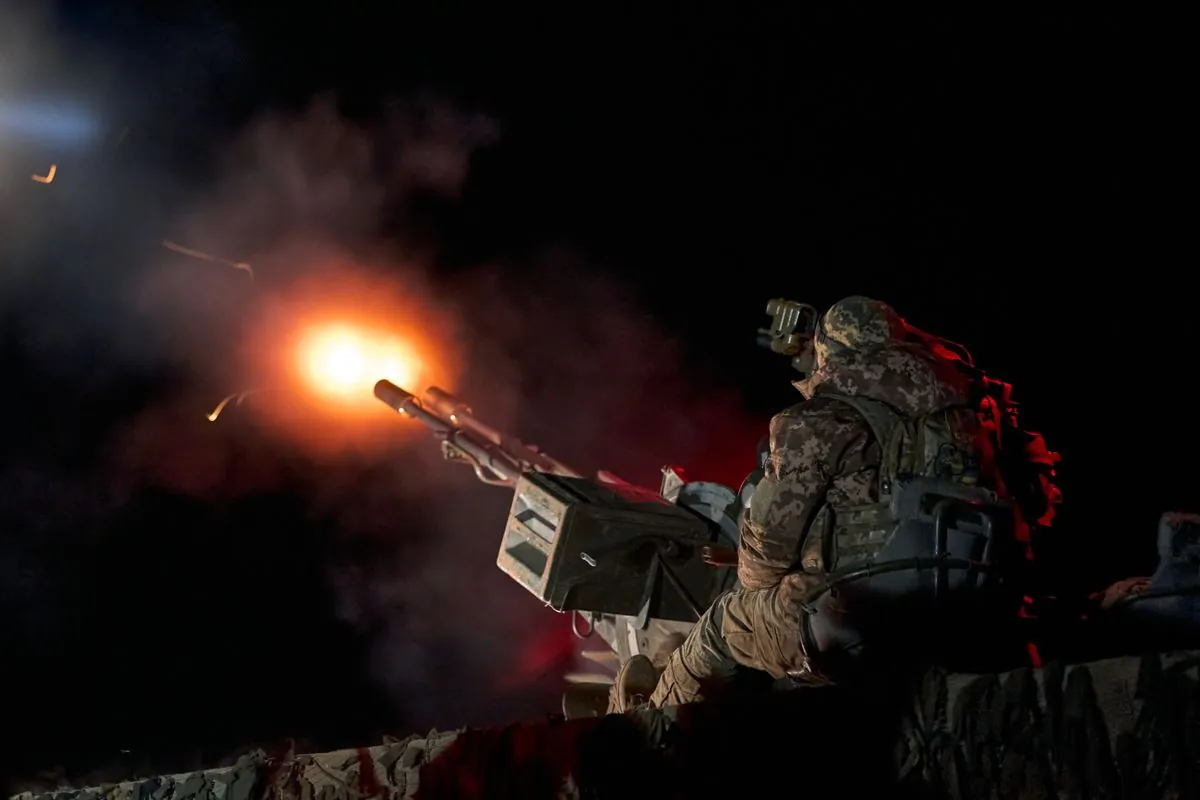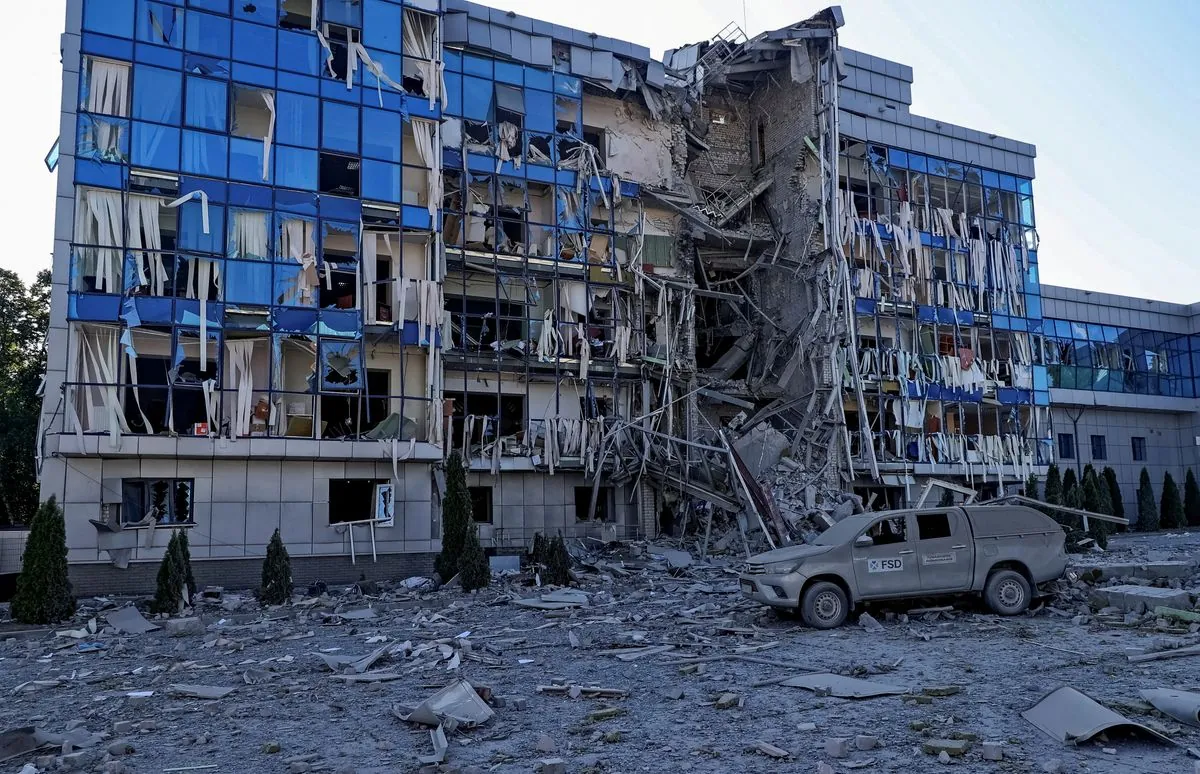Ukraine Thwarts Majority of Russian Drones and Missiles in Overnight Assault
Ukraine's air defense successfully intercepted most Russian drones and missiles in an overnight attack. Minimal damage reported in Odesa and Kyiv regions, while Kharkiv suffered casualties from a separate bombing.

In a recent development in the ongoing conflict, Ukraine's air force demonstrated its defensive capabilities by neutralizing a significant portion of Russian aerial threats. The Ukrainian military reported successfully intercepting 28 out of 32 drones and 4 out of 8 missiles during a nighttime assault by Russian forces.
The southern Odesa region, home to crucial Black Sea ports, was targeted by four missiles. Oleh Kiper, the regional governor, stated that one missile struck an open area, causing a fire that was promptly extinguished. The incident resulted in minor damage to two trucks, with no reported casualties. This attack highlights the strategic importance of Odesa in the conflict, as it plays a vital role in Ukraine's grain exports, which have been significantly impacted by the war.
In the Kyiv region, Ruslan Kravchenko, the local governor, reported that drone attacks were successfully repelled without damage to critical infrastructure or residential areas. This successful defense of the capital region demonstrates the effectiveness of Ukraine's air defense systems, which have been bolstered by Western support.
The northeastern Kharkiv region, however, faced more severe consequences. A hangar sustained damage from early morning attacks. More tragically, a guided bomb strike on the city of Kharkiv the previous day resulted in three fatalities and 36 injuries, as reported by regional governor Oleh Syniehubov. Kharkiv's proximity to the Russian border has made it a frequent target throughout the conflict.

"Our military operations strictly adhere to international law and exclusively target military objectives."
Despite such claims, the reality on the ground tells a different story. The ongoing invasion, now in its third year, has resulted in thousands of civilian casualties and widespread destruction of non-military targets.
Ukraine's ability to intercept a high percentage of incoming threats showcases the country's improving air defense capabilities. This includes the integration of advanced systems like S-300 and Buk missile platforms, as well as support from Western allies. The conflict has also spurred Ukraine to develop its own drone technology, both for defense and counter-offensive operations.
The war has had far-reaching consequences beyond the immediate battlefield. It has triggered Europe's largest refugee crisis since World War II, strained global food supplies, and led to significant shifts in international energy policies. The conflict has also put numerous Ukrainian cultural heritage sites at risk and caused extensive environmental damage.
As the war continues, Ukraine has been leveraging modern technologies to maintain its defense. This includes the use of Starlink satellite internet to ensure communication resilience, even in the face of potential cyber warfare tactics employed by Russia.
The international community has responded to Russia's actions with economic sanctions, while many European countries have increased their military spending. Ukraine, for its part, has been working to strengthen its domestic arms production and continues to push for NATO membership as a long-term security guarantee.
As the conflict approaches its third year, the resilience of Ukraine's defense systems and the ongoing international support remain crucial factors in the country's ability to withstand and counter Russian aggression.


































